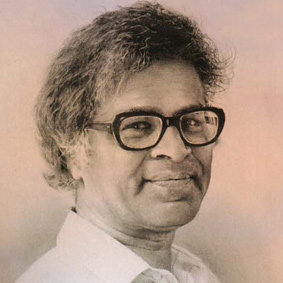Anthony de Mello słynne cytaty
„Nie proś świata aby się zmienił –
– to Ty zmień się pierwszy.”
Źródło: Marek Grębski, Jak wytrzymać z ludźmi?, s. 5.
Przebudzenie
Anthony de Mello Cytaty o życiu
Przebudzenie
„Są dwa rodzaje wychowania:
To, które uczy, jak zarobić na życie
I to, które uczy, jak żyć.”
Źródło: Ewa Drabkowska-Matusiak, Praca samoobsługowa wychowanków w internacie, „45 Minut. Toruński Przegląd Oświatowy” nr 1 (39), marzec 2005
Anthony de Mello Cytaty o ludziach
Anthony de Mello cytaty
Minuta mądrości
Źródło: Wyciągnięcie
Minuta mądrości
Źródło: Nieustraszoność
Przebudzenie
„Jak mogę przebaczyć innym?
– Gdybyś ich nigdy nie potępił, nie musiałbyś im przebaczać.”
Minuta mądrości
Źródło: Sądzenie
Bycie skrzywdzonym, mawiał, to nic takiego, chyba że chcemy to pamiętać.
Źródło: Minuta nonsensu
Źródło: Śpiew ptaka
Anthony de Mello: Cytaty po angielsku
"Obstacles to Happiness", p. 78
Awareness (1992)
Kontekst: Happiness is our natural state. Happiness is the natural state of little children, to whom the kingdom belongs until they have been polluted and contaminated by the stupidity of society and culture. To acquire happiness you don't have to do anything, because happiness cannot be acquired. Does anybody know why? Because we have it already. How can you acquire what you already have? Then why don't you experience it? Because you've got to drop something. You've got to drop illusions. You don't have to add anything in order to be happy; you've got to drop something. Life is easy, life is delightful. It's only hard on your illusions, your ambitions, your greed, your cravings. Do you know where these things come from? From having identified with all kinds of labels!
As quoted in Approaching God : How to Pray (1995) by Steve Brown, p. 94
Kontekst: Spirituality means waking up. Most people, even though they don't know it, are asleep. They're born asleep, they live asleep, they marry in their sleep, they breed children in their sleep, they die in their sleep without ever waking up. They never understand the loveliness and the beauty of this thing that we call human existence. You know — all mystics — Catholic, Christian, non-Christian, no matter what their theology, no matter what their religion — are unanimous on one thing: that all is well, all is well. Though everything is a mess, all is well. Strange paradox, to be sure. But, tragically, most people never get to see that all is well because they are asleep. They are having a nightmare.
The Way to Love (1995)
Kontekst: If you want to know what it means to be happy, look at a flower, a bird, a child; they are perfect images of the kingdom. For they live from moment to moment in the eternal now with no past and no future. So they are spared the guilt and anxiety that so torment human beings and they are full of the sheer joy of living, taking delight not so much in persons or things as in life itself. As long as your happiness is caused or sustained by something or someone outside of you, you are still in the land of the dead. The day you are happy for no reason whatsoever, the day you find yourself taking delight in everything and in nothing, you will know that you have found the land of unending joy called the kingdom.
Humanity
One Minute Wisdom (1989)
Kontekst: Much advance publicity was made for the address the Master would deliver on The Destruction of the World and a large crowd gathered at the monastery grounds to hear him.
The address was over in less than a minute. All he said was:
"These things will destroy the human race: politics without principle, progress without compassion, wealth without work, learning without silence, religion without fearlessness and worship without awareness."
“When you are guilty, it is not your sins you hate but yourself.”
Violence
Źródło: One Minute Wisdom (1989)
“Wisdom tends to grow in proportion to one's awareness of one's ignorance.”
Wisdom
Źródło: One Minute Wisdom (1989)
Wisdom
Źródło: One Minute Wisdom (1989)
“Don't ask the world to change — you change first.”
"The Death of Me", p. 151
Awareness (1992)
Źródło: Awareness: Conversations with the Masters
Kontekst: Don't ask the world to change — you change first. Then you'll get a good enough look at the world so that you'll be able to change whatever you think ought to be changed. Take the obstruction out of your own eye. If you don't you have lost the right to change anyone or anything. Till you are aware of yourself, you have no right to interfere with anyone else or with the world.
Healing
One Minute Wisdom (1989)
Źródło: Awareness: A de Mello Spirituality Conference in His Own Words
“Every word, every image used for God is a distortion more than a description.”
Comprehension
Źródło: One Minute Wisdom (1989)
“The one who would be constant in happiness must frequently change.”
Źródło: Awareness: Conversations with the Masters
“Thought can organize the world so well that you are no longer able to see it.”
Thought
Źródło: One Minute Wisdom (1989)
Źródło: Anthony De Mello : Writings (1999), p. 8
Kontekst: A master was once unmoved by the complaints of his disciples that, though they listened with pleasure to his parables and stories, they were also frustrated for they longed for something deeper. To all their objections he would simply reply: "You have yet to understand, my friends, that the shortest distance between a human being and truth is a story."
“the greatest learning of the ages lies in accepting life exactly as it comes to us.”
Źródło: The Prayer Of The Frog, Vol. 1
Źródło: Awareness: Conversations with the Masters
Źródło: One Minute Nonsense (1992), p. 96
("Leela" is more commonly spelled "Lila")
Transformation
One Minute Wisdom (1989)
“Never complain about what you permit.”
Mike Murdock, in The One-Minute Devotional (1994), p. 168
Misattributed
Źródło: One Minute Nonsense (1992), p. 67
Źródło: One Minute Nonsense (1992), p. 171
